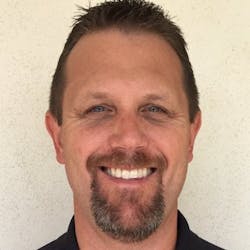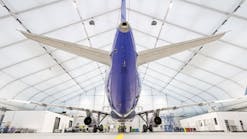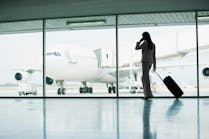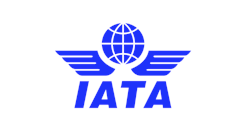In the midst of the global pandemic, heightened cleanliness has become one of the factors that determines the continued success of any commercial enterprise, and airports are no exception. The travel industry has been hit hard by COVID-19. To prevent mass transmission, the Centers for Disease Control and Prevention (CDC) recommends limiting travel in general, and using extreme caution for essential trips. During what is normally peak traveling season, U.S. airports sat eerily empty this past summer, while airlines underwent a series of layoffs.
As hotbeds for the unwitting transmission of common colds and other minor ailments, airports are already cleaned to high standards. But traditional methods of cleaning are no longer enough. The recent health crisis has airports revamping their cleaning efforts to regain travelers’ trust and create safe and positive traveling experiences. Just as Brain Corp’s BrainOS-powered autonomous mobile robots (AMRs) support essential workers in grocery stores and health care facilities around the country, they also help airports improve their approach to cleaning.
FlagShip Facility Services, an integrated facilities management company serving the airport industry, began using BrainOS-powered autonomous floor cleaners three years ago. When COVID-19 cases began rising in the U.S. this spring, Flagship increased use of the robotic floor scrubbers to help airport staff maintain cleanliness. Don Toole, the senior vice president of sales and marketing at Flagship, recognizes three main benefits from using autonomous cleaners at several of its airport facilities.
Consistent, measurable, and unsupervised cleaning
Autonomous floor cleaners enabled by BrainOS are quick and simple to deploy because they do not require any custom infrastructure or specialized training, keeping costs low. Once they’re set up, the robots require zero maintenance beyond what is normally needed for floor scrubbing equipment. As a result, instead of manning the machines as they move around the airport, cleaning staff can delegate floor cleaning to the robots and spend time on other tasks, thereby increasing productivity.
The cleaning robots also provide up-to-the-minute reports on the quality and consistency of the robots’ cleaning performance. This allows operators to track when and to what extent different cleaning routes have been covered. The data the autonomous units collect keep airport staff informed and ensure that every floor surface is regularly cleaned. Since March, Flagship’s use of the cleaning robots has increased by 25 percent.
Enhanced cleaning efficiency
“The autonomous floor scrubbers allow cleaning staff to be more focused on high-touch points, deep sanitizing, and traveler experience,” Toole said. “We use this technology so that airport employees have more time to use their skills on other important responsibilities and cleaning as a whole can happen more efficiently.”
While robots scrub the floors, airport staff can focus on more critical and hands-on tasks such as sanitizing kiosk screens, security screening bins, and seating areas. It also provides more time to assist air travelers as needed. Since January 2020, FlagShip has reallocated 6,000 hours through the use of robots and expects to reach 10,000 by the end of 2020. This addition of productivity hours that didn’t exist before, is a major benefit of robotic solutions, Toole said.
Highly visible cleanliness
Though the travel industry has heightened restrictions and created new protocols around air travel, those who have to fly during these unprecedented times can ease their concerns knowing that airports are as hygienic as possible. Visibility around cleaning efforts was never a high consideration in the past, but today it’s a critical step in earning back travelers’ confidence. Consumers are now more sensitive to the fact that cleanliness goes beyond aesthetics.
According to Toole, “travelers need to see cleaning happening since traveling already has them at heightened awareness. When they see an autonomous floor scrubber scoot by as they walk to their gates, they can be confident that the airport is not only being sanitized regularly, but also prioritizes their health.”
The presence of cleaning machines are a visible reminder that airports are doing their best to keep travelers safe.
COVID-19 has forced airports to view the traveler experience through a new lens. Heightened expectations around cleanliness require heightened cleaning procedures, relying on specialized cleaning knowledge, skills, and tools.
“The COVID-19 pandemic has made people realize that cleaning is so much more than janitorial duties,” Toole said. “It requires a technical understanding of cleaning technology, proper chemical use, dwell times, and the difference between disinfecting and sanitizing.”
AMR floor cleaners take on big, time-intensive jobs so that cleaning staff can apply their expertise where it is most needed. And the robots not only improve productivity and efficiency, but also reinforce social distancing among cleaning staff, who have more freedom to spread out while the robots cover the space in between.
“Right now, airports have a duty to ensure their facilities are clean,” Toole said. “Cleaning robots have helped enhance job efficiency for airport employees and the airport experience for travelers during this challenging time.”
Chris Wright is VP of Sales at Brain Corp based in Arizona. Chris is a hospitality and janitorial supply industry veteran, having spent 15 years at Karcher, the German cleaning corporation known for their high-pressure cleaners and floor care equipment.








